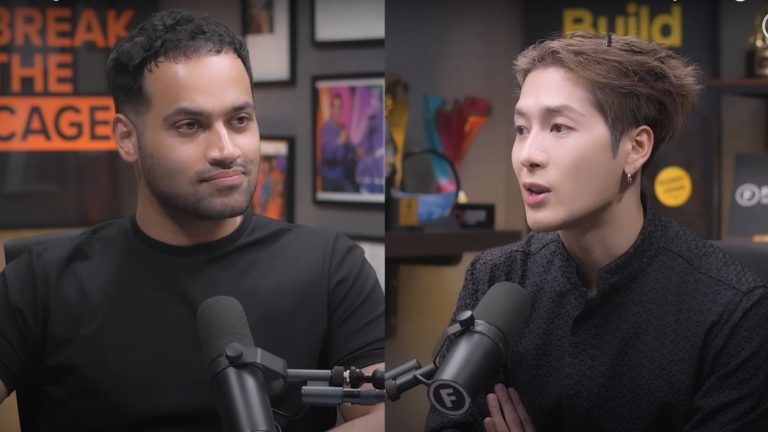MBW Views is a series of op/eds from eminent music industry people… with something to say.
The following commentary comes from Kenny Gates, the CEO and co-founder of [PIAS], a powerhouse of independent music that was established 43 years ago. [PIAS] was fully acquired by Universal Music Group last year.
IMPALA represents the interests of a group of independent music companies in Europe. It is currently lobbying against Universal Music Group’s proposed acquisition of Downtown Music Holdings in the EU.
Gates and his fellow [PIAS] co-founder, Michel Lambot, were two of the original founders of IMPALA 25 years ago.
I recently read an opinion piece penned by Helen Smith, the Executive Chair of IMPALA, regarding the proposed sale of Downtown to UMG.
I was astounded by the misleading propaganda within Helen’s comments, and felt compelled to respond.
So, I spoke to my wife, and she advised: “Do nothing.” Then I spoke to my new colleagues at UMG, and they said: “We’re not getting involved in that.”
Then I spoke to my PR guru and he said, “Frankly mate, this is not your battle to fight.”
After that, I called my long-time business partner, and one of my oldest friends, Michel Lambot, who, like me, was a co-founder of IMPALA.
Michel said, wisely: “It’s all going to blow back on you Kenny. You know that, right? They are going to question your integrity and say you’re a Universal stooge. Why bother?”
But I have always spoken my mind, and the whole ethos of [PIAS] has always been to stand up for what we believe in.
I truly appreciate the advice my friends and family have offered me. But I’ve decided to address some of Helen’s claims, because I feel I must.
Also, as I’ve said before… fuck the haters.
I’ll start with something that, as a long-standing advocate for the independent music community, particularly infuriates me.
Helen points to UMG’s bust-up with TikTok last year to support her claims of Universal’s supposed market control.
On this, let me be very clear: at least UMG had the guts to confront TikTok and try to resolve that issue. Because – surprise, surprise – IMPALA did next to nothing.
So many independent companies and organisations publicly applauded UMG’s stance vs. TikTok. Including, to name a few: A2IM, NMPA, Artist Rights Alliance, Hipgnosis, Primary Wave, The Association of Independent Music Publishers (AIMP), and others.
But IMPALA? Crickets.
“On UMG vs. TikTok? IMPALA simply sat on the sidelines.”
UMG had everything to lose taking on one of the world’s biggest and most powerful entertainment tech companies. They faced immense pressure from artists and their representatives during those negotiations, but decided it was worth it in the name of copyright’s value.
I remember a time when IMPALA led the charge on issues like this – as they did during the YouTube ‘value gap’ negotiations a decade ago.
But on UMG vs. TikTok? IMPALA simply sat on the sidelines.
Worse: Instead of joining forces with other companies/organisations within music to help avert a crisis – that of music rightsholders being underpaid and exploited by ‘Big Tech’ – IMPALA now decides to criticize a company that actually stood up for music.
The recorded music industry’s entire annual turnover is equivalent to just one week’s turnover for GAFA (Google, Amazon, Facebook, and Apple).
With that in mind, refresh my memory: who are the real ‘big dogs’ of the music world again?
Where is the real case for ‘market dominance’?
It saddens me: IMPALA was once a proudly pro-independent body. Today, it sounds more like an anti-major clique.
IMPALA wishes to appear virtuous while painting the majors as ‘bad actors’. This falsehood recalls the absurdity of Boris Johnson’s pro-Brexit London bus.
A huge global community of successful independents – including IMPALA members – are already using the distribution services of major music companies and affiliates such as ADA, The Orchard, AWAL, and Virgin Music Group.
Helen’s points about the majors’ distribution “control” being “bad for artists” must bewilder all those independent acts (and labels) that are settled, successful, and happy in these business relationships. Not to mention FREE TO LEAVE these business relationships!
“This must bewilder all those independent acts (and labels) that are settled, successful, and happy in business relationships with major-owned distributors.”
It’s naïve to pretend that the major music corporations haven’t been in the business of independent distribution for over a decade now. It’s disingenuous to suggest that there are longstanding and ongoing problems within this market.
If supposed market abuses in independent distribution exist, I’ve genuinely never seen them – or heard about them from anyone in music’s independent community.
(Remember: Universal Music Group is a publicly listed company. Any suggestion that it would contemplate bending fiduciary/market laws for its own gain is ludicrous.)
Another claim from IMPALA: there is a lack of “independent options” in distribution for artists and labels today.
This is yet another falsehood. Respected independent music industry body Merlin is happy to recommend 19 independent distributors.
Nineteen! Nananana nineteen (with apologies to Paul Hardcastle)!
Doesn’t nineteen distribution options for modern independents – and these are just the ones endorsed by Merlin – demonstrate a fair amount of market choice?!

Perhaps my biggest issue here? IMPALA’s claim to represent the independent music community.
There are literally thousands of self-releasing artists, independent labels, and entrepreneurs who are not members of IMPALA.
In reality, IMPALA’s mandate to operate on behalf of ‘independents’ actually comes from only a tiny fraction of the sector.
I have always been a proud co-founder of IMPALA (there’s a reason it’s headquartered in Brussels). Yet it’s a great shame that it’s become a small-minded, inward-looking organization, more concerned with focusing on imaginary problems than contributing solutions that actually help the music industry.
The times, they are a-changing… and make no mistake: the times have changed.
Independent music rightsholders – whether artists or labels – are thriving in a new ecosystem. The whole binary ‘indies vs. majors’ narrative is passé.
It’s time to move on from this tired old story and address the real issues, such as: the ‘value gap’ in short-form video; the growing influence of venture capital and private equity in music rights ownership and music distribution; the ever-present threats to copyright; and, of course, the elephant in the room: A.I.
The independents’ real enemy lies outside the major music companies.
Open your eyes.
Let’s all focus together on the real issues – rather than a pointless combat d’arriere garde (i.e. rearguard action) that solves nothing.Music Business Worldwide








